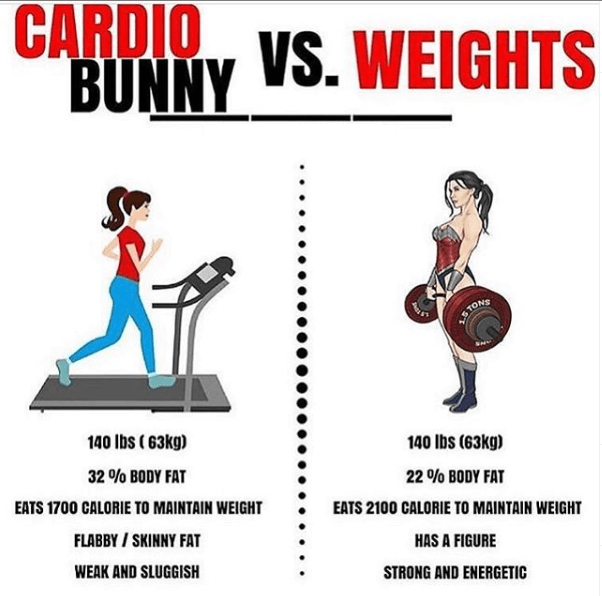In this article, we will discuss the age-old question of whether cardio or weight lifting is better for fat loss. We will explore the benefits and drawbacks of both methods, and provide you with a comprehensive understanding of how each can contribute to your weight loss goals. By the end of this article, you will have a clear idea of which approach you may want to incorporate into your fitness routine for effective fat loss.
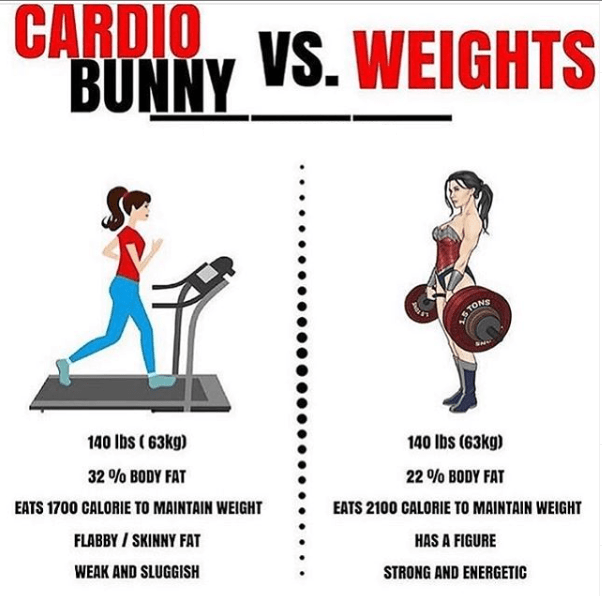
Importance of Fat Loss
Understanding Fat Loss
Fat loss is a common goal for many individuals who are looking to improve their overall health and appearance. It is important to understand that fat loss is not just about achieving a certain aesthetic, but also about reducing health risks associated with excess body fat. Fat loss refers to the process of reducing body fat while maintaining or increasing muscle mass.
Benefits of Fat Loss
There are numerous benefits to losing excess body fat. Fat loss can improve cardiovascular health, reduce the risk of chronic diseases such as diabetes and heart disease, increase energy levels, improve mood and self-confidence, and enhance overall quality of life. By shedding excess fat, you can also improve athletic performance and increase your body’s ability to burn calories efficiently.
Factors Affecting Fat Loss
Several factors can influence the rate and success of fat loss. These factors include genetics, age, sex, metabolism, diet, and physical activity levels. While genetics play a role in determining where your body stores fat, age and sex can also affect how easily you can lose fat. Additionally, a person’s metabolism, which is influenced by various factors such as muscle mass, hormones, and overall health, plays a significant role in fat loss. Lastly, maintaining a calorie deficit through a balanced diet and regular physical activity is essential for successful fat loss.
Cardiovascular Exercise for Fat Loss
Definition and Examples of Cardiovascular Exercise
cardiovascular exercise, also known as aerobic exercise, is any form of physical activity that elevates the heart rate and increases oxygen consumption. It includes activities such as running, cycling, swimming, dancing, and brisk walking. Cardiovascular exercise is known for its ability to improve heart health, increase lung capacity, and burn calories.
How Cardiovascular Exercise Burns Fat
During cardiovascular exercise, your body primarily relies on stored fat and carbohydrates for fuel. As the intensity of your workout increases, your body will start to burn a higher percentage of calories from stored fat. This occurs because oxygen is readily available during aerobic exercise, allowing your body to break down fat molecules and convert them into energy.
Recommended Cardiovascular Exercise for Fat Loss
To maximize fat loss through cardiovascular exercise, it is recommended to engage in moderate-intensity aerobic activities for at least 150 minutes per week, or vigorous-intensity activities for 75 minutes per week. This can be achieved through activities such as jogging, cycling, swimming, or attending aerobic classes. It is important to start at a comfortable intensity and gradually increase the duration and intensity of your workouts to avoid injury and build endurance.
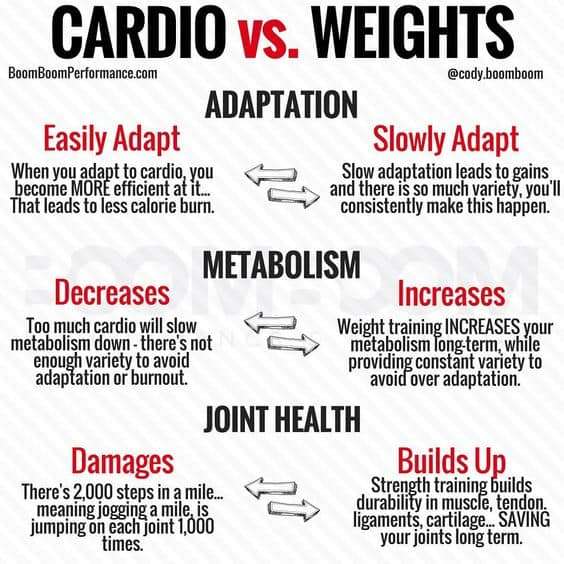
Weight Lifting for Fat Loss
Definition and Benefits of Weight Lifting
Weight lifting, also known as strength training or resistance training, involves using external resistance such as dumbbells, barbells, or resistance machines to build muscle strength and endurance. Weight lifting offers numerous benefits, including increased muscle mass, improved bone density, enhanced metabolic rate, and increased calorie burn even at rest.
How Weight Lifting Aids in Fat Loss
Contrary to popular belief, weight lifting can be an effective tool for fat loss. When you engage in weight lifting exercises, you create micro-tears in your muscle fibers. As your body repairs these tears, it requires energy in the form of calories. This increased energy demand continues even after your workout is complete, resulting in an elevated metabolic rate and increased fat burning over time.
Recommended Weight Lifting Exercises for Fat Loss
To promote fat loss through weight lifting, it is recommended to incorporate both compound exercises and isolation exercises into your routine. Compound exercises, such as squats, deadlifts, and bench presses, target multiple muscle groups simultaneously, maximizing calorie burn and muscle engagement. Isolation exercises, such as bicep curls or tricep extensions, focus on specific muscles and can be used to enhance muscle definition. Aim to perform weight lifting exercises at least two to three times per week for optimal fat loss results.
Comparison: Cardio vs. Weight Lifting
Different Approaches to Fat Loss
Cardiovascular exercise and weight lifting offer different approaches to fat loss. Cardio focuses on burning calories during the workout, while weight lifting emphasizes building muscle and increasing metabolic rate over time. Both approaches have their own unique benefits and should ideally be combined for maximum fat loss and overall health.
Caloric Burn during Cardio vs. Weight Lifting
Cardiovascular exercise typically burns more calories during the workout itself compared to weight lifting. However, weight lifting helps to increase muscle mass, which in turn increases your body’s overall calorie burn even at rest. This means that while cardio may burn more immediate calories, weight lifting has a more long-term effect on fat loss.
Speed of Fat Loss
Cardiovascular exercise is often associated with faster weight loss results due to its high calorie burn. However, weight lifting can provide longer-lasting fat loss effects by increasing muscle mass and metabolic rate. Therefore, the speed of fat loss will depend on a variety of factors including intensity, duration, frequency, and individual response to each type of exercise.
Metabolic Effects of Cardio vs. Weight Lifting
Cardiovascular exercise primarily improves cardiovascular health and endurance. Weight lifting, on the other hand, not only burns calories during the workout but also increases muscle size and strength, leading to a higher metabolic rate. This means that weight lifting can have a greater impact on long-term fat loss by increasing your body’s ability to burn calories even while at rest.
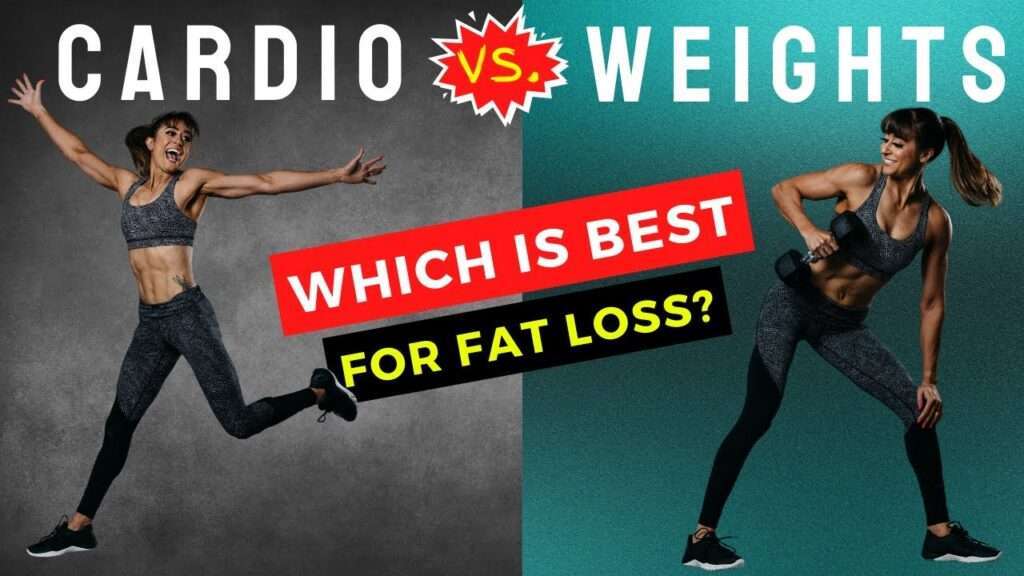
Combining Cardio and Weight Lifting
Synergistic Effects of Cardio and Weight Lifting
Combining cardiovascular exercise and weight lifting can have synergistic effects on fat loss. Cardiovascular exercise helps to burn calories and improve cardiovascular health, while weight lifting increases muscle mass and metabolic rate. This combination promotes overall fat loss and improves body composition by reducing body fat while preserving or increasing lean muscle mass.
Optimal Balance and Scheduling
To optimize fat loss, it is essential to find a balance between cardio and weight lifting that suits your individual goals and preferences. The American College of Sports Medicine recommends aiming for at least 150 minutes of moderate-intensity cardiovascular exercise per week, along with two to three days of weight lifting. The exact distribution of cardio and weight lifting will depend on factors such as fitness level, availability, and personal preferences.
Examples of Effective Combined Cardio and Weight Lifting Routines
An effective combined cardio and weight lifting routine may include three to four days of weight lifting, focusing on different muscle groups each day, and two to three days of cardiovascular exercise. For example, you could perform weight lifting exercises on Monday, Wednesday, and Friday, and engage in cardio activities such as running or cycling on Tuesday and Thursday. This schedule allows for adequate recovery and the opportunity to target both strength and cardiovascular fitness.
Individual Considerations
Fitness Levels and Goals
When designing a fat loss routine, it is important to consider your current fitness level and specific goals. If you are new to exercise or have underlying health conditions, it is advisable to consult with a healthcare professional or certified trainer to develop a safe and effective plan. Additionally, your goals may dictate whether you prioritize cardiovascular exercise or weight lifting in your routine.
Injury Prevention
Injury prevention is crucial for long-term success in any fitness program. Proper form, technique, and gradual progression are essential when engaging in both cardio and weight lifting exercises to minimize the risk of injury. It is important to listen to your body, rest when needed, and consult with a professional to ensure you are using correct form and technique.
Personal Preferences
Personal preferences should also be taken into account when deciding between cardio and weight lifting for fat loss. Some individuals may find cardio activities more enjoyable, while others may prefer the challenge of weight lifting. Incorporating activities that you enjoy and look forward to will increase the likelihood of adherence to your exercise routine.
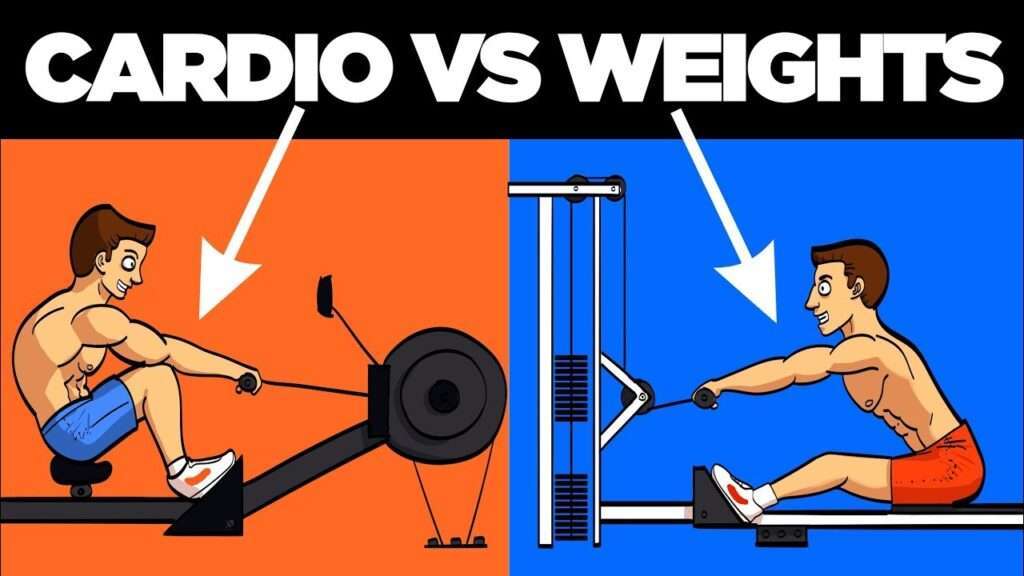
Importance of Nutrition for Fat Loss
Understanding Caloric Deficit
While exercise plays a vital role in fat loss, nutrition is equally important. To lose fat, you need to consume fewer calories than you burn, creating a caloric deficit. A caloric deficit can be achieved through a combination of exercise and dietary changes. It is important to focus on consuming nutrient-dense foods while ensuring that your overall caloric intake is reduced.
Macronutrient Distribution for Fat Loss
In addition to a caloric deficit, the distribution of macronutrients (carbohydrates, protein, and fat) in your diet also plays a role in fat loss. It is recommended to consume an adequate amount of protein to support muscle maintenance and growth, while reducing refined carbohydrates and unhealthy fats. Including a variety of fruits, vegetables, whole grains, lean proteins, and healthy fats in your diet can support fat loss and overall health.
Benefits of a Balanced Diet
Following a balanced diet can provide numerous benefits beyond fat loss. A balanced diet ensures that your body receives the necessary vitamins, minerals, and nutrients to support overall health and well-being. It can also help regulate hunger and cravings, improve digestion, and enhance energy levels, allowing you to perform optimally during workouts.
Monitoring Progress
Measuring Body Fat Percentage
When tracking fat loss progress, it is important to consider more than just weight on the scale. Measuring body fat percentage provides a more accurate representation of changes in body composition. There are various methods to measure body fat percentage, including skinfold calipers, bioelectrical impedance scales, or DEXA scans. It is advisable to consult with a healthcare professional or certified trainer to determine the most suitable method for you.
Tracking Weight and Measurements
Although weight alone does not provide a complete picture of fat loss progress, it can still be a useful metric to monitor. It is important to consistently track your weight under similar conditions, such as weighing yourself first thing in the morning after using the bathroom. Additionally, measuring other body parts such as waist circumference, hip circumference, and thigh circumference can provide additional information on fat loss progress.
Assessing Performance and Energy Levels
Monitoring your performance and energy levels during workouts can also indicate the effectiveness of your fat loss routine. As you reduce body fat and increase muscle mass, you may notice improvements in strength, endurance, and overall athletic performance. Additionally, paying attention to your energy levels throughout the day can provide insights into whether your nutrition and exercise regimen adequately supports fat loss.
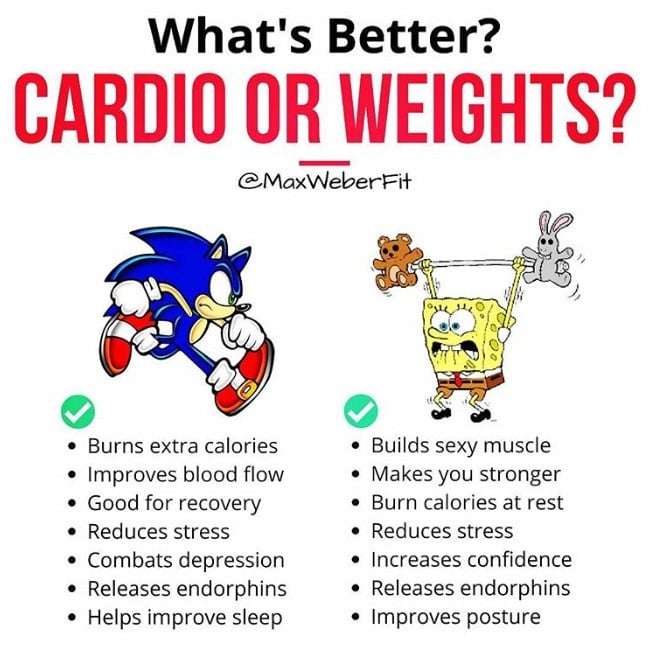
Maintaining Fat Loss
Sustainable Lifestyle Changes
Maintaining fat loss requires making sustainable lifestyle changes rather than relying on short-term solutions. Adopting healthy eating habits, regular exercise, and stress management techniques can significantly increase the likelihood of long-term success. It is important to remember that a healthy lifestyle is a journey, and consistent effort is needed to maintain fat loss results.
Continued Exercise and Nutrition
To sustain fat loss, it is important to continue engaging in regular exercise and maintaining a balanced diet. Regular physical activity and a combination of cardio and weight lifting will help preserve muscle mass and prevent weight regain. Additionally, focusing on nutrient-dense foods and portion control can support overall health and prevent excessive calorie intake.
Maintaining Motivation and Discipline
Maintaining motivation and discipline is key when it comes to long-term fat loss success. Setting realistic goals, celebrating milestones, and finding a support system can help keep you motivated. Additionally, incorporating variety into your exercise routine and trying new activities can prevent boredom and increase adherence. Developing healthy habits and a positive mindset will contribute to sustained fat loss over time.
Conclusion
When it comes to fat loss, both cardio and weight lifting have their own unique benefits. Cardiovascular exercise burns calories during the workout and improves cardiovascular health, while weight lifting increases muscle mass and metabolic rate, leading to increased calorie burn even at rest. Combining both forms of exercise can provide synergistic effects on fat loss and overall health. It is essential to consider individual fitness levels, goals, and preferences when designing a fat loss routine. Monitoring progress and maintaining a balanced diet are equally important aspects of successful fat loss. By making sustainable lifestyle changes and staying motivated, you can achieve and maintain your fat loss goals. Remember to consult with a healthcare professional or certified trainer for personalized guidance and support throughout your fat loss journey.
